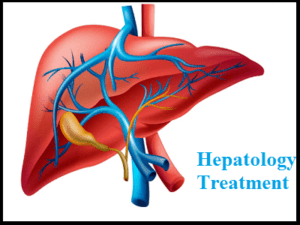The liver, the second-largest organ of your body – and the largest internal organ, because the largest organ is the skin – helps in digestion and in removing impurities from the body. It filters out all of the unwanted and unneeded compounds from the food and drinks that you consume. Our liver also produces bile, which helps your body metabolize fat. The bile is stored in the gallbladder until it is needed for digestion in the small intestines.

The branch of medicine specializing in the diagnosis and treatment of the liver’s various functions, abnormalities, and diseases is called hepatology. A hepatologist is a doctor who specializes in the illnesses and health of the liver, pancreas, and gallbladder, as these
| liver fibroscan treatment in shivaji nagar pune |
organs work very closely together
Conditions Treated in Hepatology
Some of the main conditions that hepatologists treat are the following:
Bile Duct Cancer
The bile duct is composed of many small channels in your liver. This duct continues to the duodenum, which is the first part of your small intestine and is where bile passes through when you eat fatty foods
When the bile duct is inflamed or infected, you have a greater risk of developing bile duct cancer. This cancer is also known as cholangiocarcinoma, and it is slow-growing and can cause jaundice of the eyes and/or skin. The treatment options for bile duct cancer are surgery, radiation, and chemotherapy.
Liver Cancer
Liver cancer is difficult to cure, but it is the most treatable when identified early. A liver transplant may even wholly rid you of liver cancer. However, in cases where this treatment does not work or is not an option, radiation therapy may help relieve the symptoms of this disease.
Hepatitis
When your liver is inflamed, this is hepatitis. This inflammation may be caused by viruses or parasites that you acquire from contaminated food or water, or from being in contact with the bodily fluids of an infected person. Hepatitis is particularly prevalent in three main forms, namely hepatitis A, B, and C.
Cirrhosis of the Liver
If your liver is injured or degraded due to illnesses or excessive alcohol consumption, it tries to heal itself, forming a scar in the process. Liver scarring is known as cirrhosis of the liver.
As more and more scar tissue forms, the liver function deteriorates. Early detection and treatment of liver cirrhosis can limit the damage, but it cannot reverse it. If left untreated, cirrhosis can be life-threatening.
Gallbladder Disease
The gallbladder stores bile from your liver and transports it to the small intestines when needed. When gallstones form in your gallbladder, or when it gets inflamed, you can develop gallbladder disease – also called cholecystitis. Your gastroenterologist may recommend medication to treat this disease.
However, if symptoms do not respond to medication, surgery may be necessary. One of the most common surgical procedures for gallbladder disease is laparoscopic cholecystectomy.
Pancreatitis
When your digestive fluids get trapped inside your pancreas, it becomes painful and swollen – leading to pancreatitis, or inflammation of the pancreas. This disease needs immediate treatment to avoid further life-threatening problems like shock, diabetes, anemia, and severe liver inflammation.
Pancreatic Cancer
When abnormal cell growth occurs in your pancreas, you are at risk of developing pancreatic tumors. Some tumors can be noncancerous, while some can cause pancreatic cancer.
Early detection and treatment of pancreatic cancer is imperative. Treatment options include surgery, radiation therapy, chemotherapy, or a combination of these therapies.
